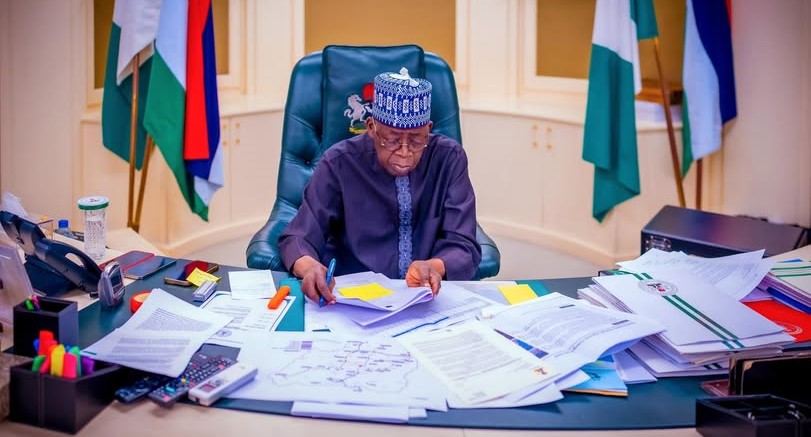President Bola Tinubu has appointed new service chiefs in a decisive restructuring of Nigeria’s military command. The move underscores his administration’s growing determination to strengthen national security and restore stability across the country. By introducing new service chiefs, Tinubu signals a clear shift toward strategic defense reforms aimed at improving coordination and operational efficiency.
This announcement comes at a time when Nigeria faces persistent and complex security challenges. In the northeast, insurgent attacks continue to affect communities and disrupt livelihoods. Across the northwest, banditry has forced thousands to abandon their homes. Meanwhile, in the southeast, separatist tensions have created anxiety among local residents. Each region faces distinct threats, yet the government’s central objective remains unified — to safeguard the lives of citizens and preserve the nation’s territorial integrity. The appointment of the new service chiefs therefore represents more than a leadership change; it reflects a broader effort to reshape Nigeria’s security landscape.
For years, security analysts and international observers have urged Nigeria to modernize its military structure. They argue that stronger intelligence systems and better coordination are essential to meet the country’s evolving threats. Tinubu’s recent move responds directly to that call for reform. The selection of new service chiefs is intended to inject fresh perspective and discipline into the armed forces. It also demonstrates the president’s belief that effective leadership can transform institutional culture and restore public trust.
Beyond the symbolism, this restructuring holds real implications for regional stability and global partnerships. Nigeria remains a key player in West Africa’s security architecture. Its ability to combat terrorism, piracy, and cross-border crime directly affects neighboring states and international trade routes. Therefore, strengthening the country’s defense framework carries significance far beyond its borders. By reenergizing the command structure, Tinubu aims to ensure that Nigeria remains a reliable partner in global peacekeeping and counterterrorism efforts.
Moreover, the decision aligns with the administration’s broader vision for economic recovery and social progress. Without security, investors hesitate, trade weakens, and communities struggle to grow. Tinubu understands that sustainable development begins with safety and stability. The new service chiefs are therefore expected to bring modern thinking, advanced technology, and operational precision into national defense. Their success will depend on collaboration, intelligence-sharing, and the capacity to anticipate threats before they escalate.
Observers across diplomatic and policy circles have welcomed the decision as timely and strategic. Many view it as a necessary realignment of Nigeria’s defense priorities. By setting clear expectations for accountability and transparency, Tinubu sends a message that performance will define leadership. This approach resonates with international standards of governance and defense management. It also reassures citizens that national security remains a central focus of the administration.
The new service chiefs face a demanding mission. They must rebuild morale, improve coordination, and ensure that operations reflect both professionalism and respect for human rights. Tinubu’s government has emphasized that protecting civilians remains the highest priority. Therefore, success will be measured not only by battlefield victories but by restored confidence and visible peace across communities.
In the broader context, the appointment of new service chiefs represents a defining moment for Nigeria’s future. It reflects a government determined to confront insecurity with focus and innovation. As the new leaders take command, they inherit both responsibility and opportunity — the responsibility to defend the nation and the opportunity to redefine its path toward stability. Through this decisive reform, President Bola Tinubu reinforces Nigeria’s role as a cornerstone of regional security and a nation determined to secure lasting peace for its people.





